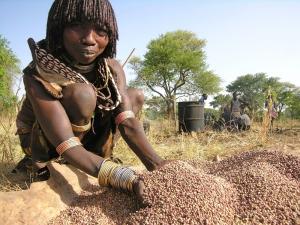Complete Cereal Genome To Solve Food Shortages
Unveiling of Cereal Genome Heralds Bright Future for Battling Food Shortages
The complete genome of the common third-world food source sorghum has been mapped. According to Elizabeth Neilson postdoc at the VILLUM Research Center for Plant Plasticity, this is an important step towards solving the problems that crops already are facing as a result of climate change.
 With increasing number of people on our planet it is crucial to breed plants with high nutritional value able to grow in areas with long periods of drought. Sorghum is already an important crop in Africa because of its ability to grow on very little water supplies. However, both the yield and the protein contents are very low and the cereal is not easily digested.
With increasing number of people on our planet it is crucial to breed plants with high nutritional value able to grow in areas with long periods of drought. Sorghum is already an important crop in Africa because of its ability to grow on very little water supplies. However, both the yield and the protein contents are very low and the cereal is not easily digested.
The gene making sorghum more digestible has already been identified. Mapping and identifying the genes and comparison between wild sorghum and inbred commercial sorghum will also reveal the genes responsible for the drought tolerance. With this knowledge the researchers then know which plants would be beneficial to refine into a new and stronger species through breeding or genetic engineering.
Postdoc Elizabeth Neilson was interviewed by popular Danish Science website Videnskab.dk about the newly published results in Nature Communications (link).
The article was brought on the Danish popular science site Videnskab.dk (link) and in the news paper Berlingske (link)
